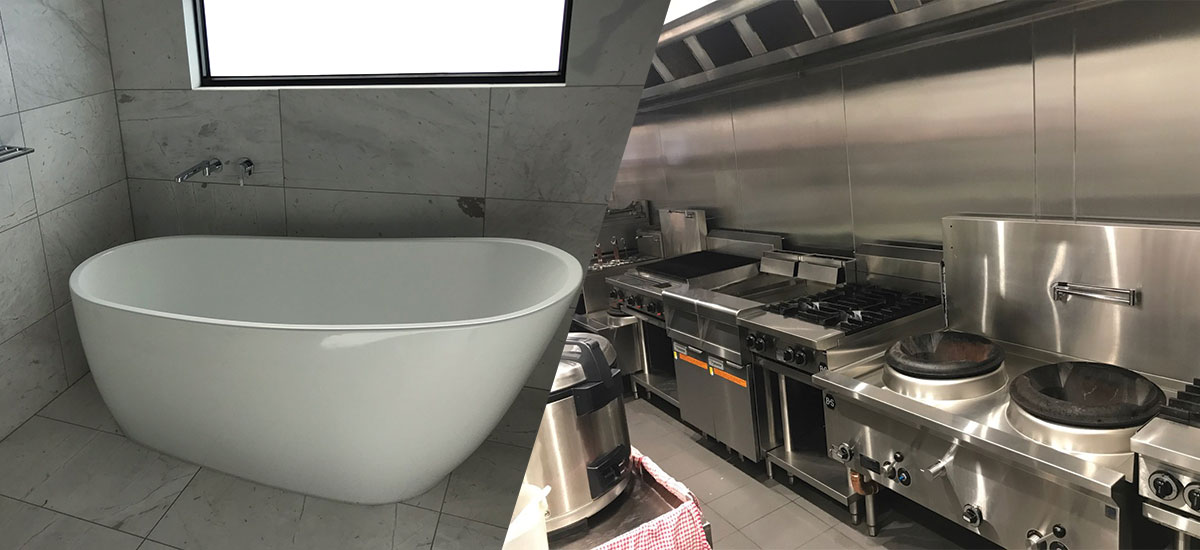FOR A FAST QUOTE CALL
0448 177 762FOR A FAST QUOTE CALL
0448 177 762
All of us have had some plumbing problems at some point. Whether it’s at home or in the office, you might have come across clogged drains and faulty faucets that you asked the help of a plumber for — and that’s not a bad thing. Plumbing professionals are trained to fix these issues. And like any kind of industry professionals, they also have their own areas of specialisation.
Today, we will discuss the key differences between a residential and a commercial plumber. In breaking down the distinction in what they do and the responsibilities involved in their roles, you can make a better decision about who to call when faced with plumbing issues in the future. So, if you’re looking for a plumbing services in Melbourne, this article will definitely be helpful. That said, let’s begin.
While plumbing professionals who work on a residential setting do virtually the same thing as that of those working in a commercial environment, the structural components that they work on vary greatly.
In residential homes, the pipes and the water faucets are not used as much as those in commercial buildings. To put things into perspective, a family of five does not use as much water and does not use toilets, sinks, and faucets as much as an establishment that houses over 50 employees.
That said, the components used in commercial plumbing will have different specifications than those used in residential plumbing. The materials used in commercial places are designed and engineered to withstand more use and wear. The strength, thickness, and the components used to join and bond industrial pipes will be different from those used in residential houses — and with that, are the skills and techniques needed to ensure a lasting result.
Another factor that differentiates commercial plumbing and residential plumbing is the scope and complexity of work involved.
A residential plumber typically works on kitchen faucets and sinks, toilets and showers, and repairs broken pipes. He may jump from one house to another, but usually performs the same set of tasks on a daily basis.
Plumbing professionals in the commercial field, on the other hand, are expected to know how to deal with different problems every day. These include dealing with flooded bathrooms in a multi-storied building or install plumbing systems in a commercial property.
They work on larger infrastructures and should be prepared to work on large boilers, site sewer lines, and pipes that are utilised on a larger scale.
Furthermore, a residential plumbing expert will usually be on a regular eight-to-five hour shifts (typically from Monday to Friday) while those who operate in the commercial industries can be called at any given time and are often asked to do repairs during the weekends and holidays to take advantage of the times where employees are not around the premises.
As we’ve briefly covered above, commercial plumbing deals with the use of heavier and more durable components as well as equipment. The risk that comes with handling and operating the said materials involve greater risks compared to lightweight and more straightforward ones used in residential homes.
The difference goes beyond the safety of the plumbing professionals but also of the actual building as well as the structures that stand close to it.
Broken pipes and damaged sewages in a residential home can be problematic, but when compared to a damaged pipe that runs across 10 floors, the effects can be severely catastrophic. Water delivery and waste management of the entire building is compromised, the condition of the employees and the operational capacity of the business will be affected.
The obligations linked to health and safety when it comes to plumbing in commercial locations are stricter because of the number of employees using the facilities and the customers who will visit the establishment.
This does not mean that residential plumbing does not follow health and safety protocols, it’s just that the requirements and the demand for businesses are far significant and substantial.
Commercial plumbing professionals are also expected to know and adhere to the codes set by the National Construction Code (NCC) regarding “the minimum necessary requirements for safety, health, amenity, and sustainability in the design and construction of new buildings (and new building work in existing buildings) throughout Australia.”
Now that you know the difference between both types of professionals, you can make a better choice of who to call if your home or your office is experiencing plumbing problems.
If you’re wanting to speak with a local plumber or looking for a free quote, get in touch with us today.